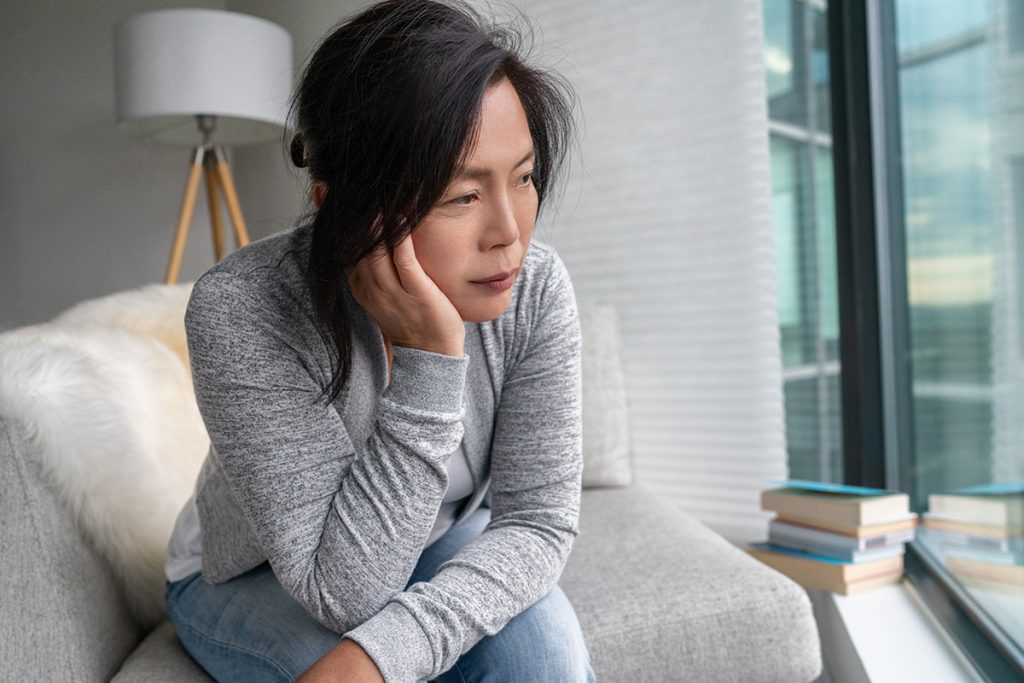Working from home provides unique challenges AND opportunities for those managing pain and other chronic health conditions. Shifting our mindset from the hyper-productivity so common in our culture, and instead focusing on mindful self-care and self-advocacy (which can actually promote productivity!) can start a powerful trend toward resilience and renewable energy in our workday and personal life. In this interview, Dr. Kate Truitt and Rebecca Turner, LMFT brainstorm ways to care for your body.
While there are many conversations about medical considerations regarding the Coronavirus—mental health and emotional well-being are also very important. The Havening Techniques provide an exciting opportunity for self-healing in a time of emotional global turmoil. Join Dr. Kate Truitt to learn more about Healthy Anxiety specifically tied to Coronavirus fears and how self-havening can help calm the mind and body.
Dr. Kate Truitt explores the relationship between trauma and psychoimmunology at the 2018 Psychoimmunology Summit. Explore the longstanding impact of stress and trauma on brain and body development, especially as they relate to immune disorders and chronic illness. Dr. Truitt is an expert in trauma and stress and herself has survived Encephalitis and the serious resulting complications. Dr. Truitt shares her recovery story including tools she used to help her brain and body heal.
Did you know that our Amygdala has a tiny nucleus in it—the Central Nucleus – that remembers the physiological aspects of trauma? Our Amygdala is so smart that is actually encodes anticipated experiences and, thus, anticipated physical experiences are also remembered. Just as a panic attack frequently feels like a heart attack—today a cough or even feeling “warm” can quickly evolve into a panic of “I have COVID!” Please know, this is your brain simply being a brain. This guided meditation brings together the Self-Havening touch, which creates the electrochemical opposite of a fear state in our brain, and guided work to decrease anxiety and increase relaxation and calm.
Millions of people deal with chronic conditions, but few of them open about it. Many people don’t want to burden people with their pain or illness. Additionally, chronic pain can be difficult to talk about and hard to understand.
Chronic conditions aren’t always visible, and they can affect much more than the body. The daily endurance of pain or illness can leave you feeling angry, confused, isolated, ashamed, and hopeless. It strips away your sense of agency and redefines your sense of normalcy. As your body betrays you for weeks, months, or even years, the idea of “getting back to normal” feels far or even impossible to reach.

While there are millions of individuals dealing with chronic conditions, it is rare to hear anyone talking about it. Many people don’t want to burden the people around them with their pain or illness, especially in areas like Los Angeles, where there is extraordinary pressure to create, achieve and excel. Additionally, chronic pain can be difficult to talk about and especially hard to understand. Even if someone wants to share their experience, many times they find it isn’t worth talking about because they are met with statements like the ones listed below rather than with the reassurance and validation they need.
As well-intentioned as these statements may be, you may want to think twice before saying:
It isn’t rare for someone with chronic pain to look just like everyone else. They have their ups, their downs, their laughs, and their cries. Even on their worst days, they can be pretty good at hiding their suffering due to the fear of being judged and misunderstood.
When someone with chronic pain hears someone say, “you don’t look sick,” all they can think is “here we go again!” Maybe for the hundredth time they feel required to explain what their experience is like on a daily basis and hope to God that this person has a compassionate response. Sometimes, rather than having to educate someone on their condition to prove their pain and risk hearing one of the other statements below, it is easier for them to hide their pain, further isolating them from the people around them.
Offering advice about what has helped you or someone you know deal with pain is a nice gesture but not always warranted or welcome. More likely than not, an individual suffering from chronic pain has already been offered every exercise plan, medication, diet, activity, and cure-all idea you can think of. Suggestions like these can be very frustrating for them because it assumes they haven’t already been trying everything they can to feel better and once again makes them explain why (insert suggestion here) isn’t going to cure their condition. Instead, just listen to them! If they want your opinion or advice they will ask for it.
It is especially difficult for those who have chronic pain that exists in the absence of medically identifiable causes. Despite scientist’s efforts to better understand the mind and body connection, many individuals and their doctors are left frustrated trying to pinpoint a medical cause. This also makes it increasingly difficult for family and friends to “get it” and provide their loved one with the reassurance and validation they need.
If you or your loved one is suffering from chronic pain or illness, therapy is a great place to find support and hope for relief. Therapy can empower you to cultivate the tools, insight, and mindset needed to move forward. It can be a safe place for you to share anything and everything that is coming up for you. It is time to regain your sense of self, discover a new “normal,” and reengage in your life. Come begin your journey towards living your fulfilled and inspired life.
———————————
Federal Department of Consumer Affairs and Board Of Behavioral Science Notifications For Consumers